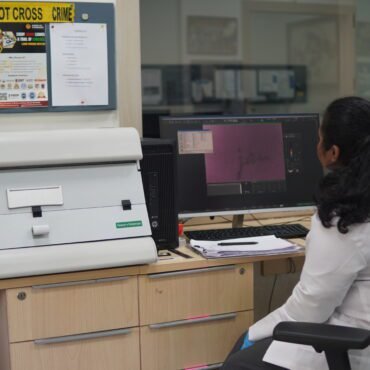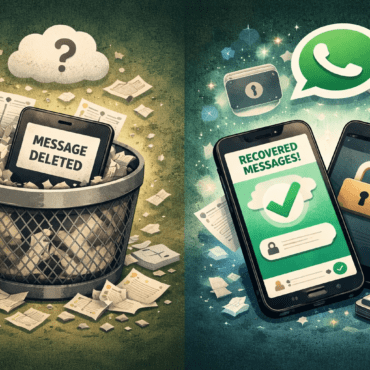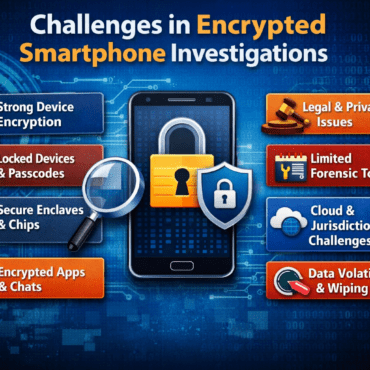1. Introduction – What is Certified Digital Forensics Examiner (CDFE)?
The Certified Digital Forensics Examiner (CDFE) course by Mile2 is one of the most respected certifications in the field of digital forensics and cyber investigation.
This globally recognized program trains professionals to identify, collect, analyze, and present digital evidence while maintaining the highest legal and ethical standards.
Designed for both technical practitioners and managers, the CDFE certification ensures that investigators can perform reliable forensic analyses on devices ranging from traditional computers to mobile phones, IoT devices, and cloud platforms.
2. Key Course Information
The CDFE curriculum is aligned with ISO/IEC 27037 and NIST 800-101, ensuring that the forensic methodologies meet international legal standards.
3. Certified Digital Forensics Examiner (CDFE) Detailed Outline
The CDFE course is structured into 17 comprehensive modules, covering every aspect of digital forensic investigation.
Module Highlights:
-
Forensics Incidents: Origins, legal systems, and cybercrime classifications.
-
Investigative Theory: Behavioral and equivocal forensic analysis.
-
Standards & Prerequisites: Scene management and industry guidelines.
-
Investigative Process: From evidence collection to reporting.
-
Evidence Protocols: Categories, admissibility, and chain of custody.
-
Acquisition & Analysis Tools: CFFTPM, authentication, AI integration.
-
Disks and Storage: HDD, SSD, cloud storage, and damaged drives.
-
Live Acquisitions: Windows, macOS, Linux, and virtualization.
-
Windows Forensics: Log analysis and breach detection.
-
Linux Forensics: File systems, logs, and investigation techniques.
-
macOS Forensics: Artifacts, file systems, and analysis methods.
-
Artifact Recovery: Memory forensics, web evidence, and deleted data.
-
Advanced Search: Regex, file signatures, and HEX analysis.
-
Mobile Forensics: IoT, wearables, and mobile legal challenges.
-
eDiscovery: Electronic discovery laws and workflow.
-
Lab Protocols: QA/QC standards, SOPs, and lab setup.
-
Evidence Reporting: Documentation, authenticity, and expert reporting.
4. Certified Digital Forensics Examiner Labs
The program emphasizes hands-on practice with 17 forensic labs, including:
-
Lab 01 – Chain of Custody
-
Lab 03 – Device & Memory Acquisition
-
Lab 06 – Case Investigation
-
Lab 08 – Windows Event Log Analysis
-
Lab 09 – Linux Info Retrieval
-
Lab 10 – macOS Evidence Investigation
-
Lab 13 – Data Carving
-
Lab 14 – Specialized Artifact Recovery
-
Lab 16 – Android Forensics
-
Lab 17 – Incident Response
These labs ensure real-world competency in handling digital evidence from start to finish.
5. Course and Certification Learning Options
CDFE offers flexible learning paths to suit different professionals:
-
🎓 Instructor-Led Classes: In-person, immersive learning with experts.
-
💻 Self-Study: Study at your own pace with Mile2’s learning materials.
-
🌐 Live Virtual Training: Attend from anywhere with online interaction.
Every format grants full access to courseware, lab manuals, and the online exam portal.
6. Who Should Attend
The CDFE certification is ideal for:
-
Digital Forensic Examiners & Investigators
-
Law Enforcement & Military Personnel
-
Cybersecurity Professionals
-
Legal & Compliance Experts
-
IT Managers & Security Leaders
-
Corporate Investigators & Fraud Analysts
If your role involves incident response, digital investigations, or evidence handling, this certification will significantly boost your career profile.
7. Certified Digital Forensics Examiner (CDFE) Exam Information
-
Format: Online exam via Mile2 Learning Management System
-
Duration: 2 hours
-
Questions: 100 multiple choice
-
Passing Score: 70% minimum
-
Access: Through your Mile2.com account
The exam measures your ability to apply forensic methodologies and maintain evidence integrity throughout the investigation process.
8. Certified Digital Forensics Examiner (CDFE) Re-Certification Requirements
CDFE certification is valid for 3 years. To maintain your credentials:
-
Pass the latest version of the CDFE exam, or
-
Earn 20 Continuing Education Units (CEUs) per year in your Mile2 account.
This ensures your knowledge remains current with evolving forensic technology and standards.
9. Certified Digital Forensics Examiner (CDFE) Accreditation
CDFE is developed and accredited by Mile2, a globally recognized cybersecurity certification body.
Mile2 certifications map to role-based career paths recognized by government, military, and private sector organizations worldwide.
The course aligns with:
This alignment makes the CDFE credential legally defensible and industry-trusted.
10. Why Choose the CDFE Certification
✅ Industry-standard forensic procedures
✅ Practical lab-based learning
✅ Global accreditation and recognition
✅ Flexible learning modes
✅ Builds credibility in digital investigations
Whether you’re entering the digital forensics field or advancing your career, CDFE is your pathway to becoming a certified expert in evidence analysis and cyber investigation.
Conclusion
In the evolving world of cybercrime, the Certified Digital Forensics Examiner (CDFE) certification equips you with the expertise to uncover digital evidence that can stand up in court.
With its balance of technical mastery, legal awareness, and investigative skill, this certification is essential for professionals aiming to excel in forensic cybersecurity and digital law enforcement.





Post comments (1)